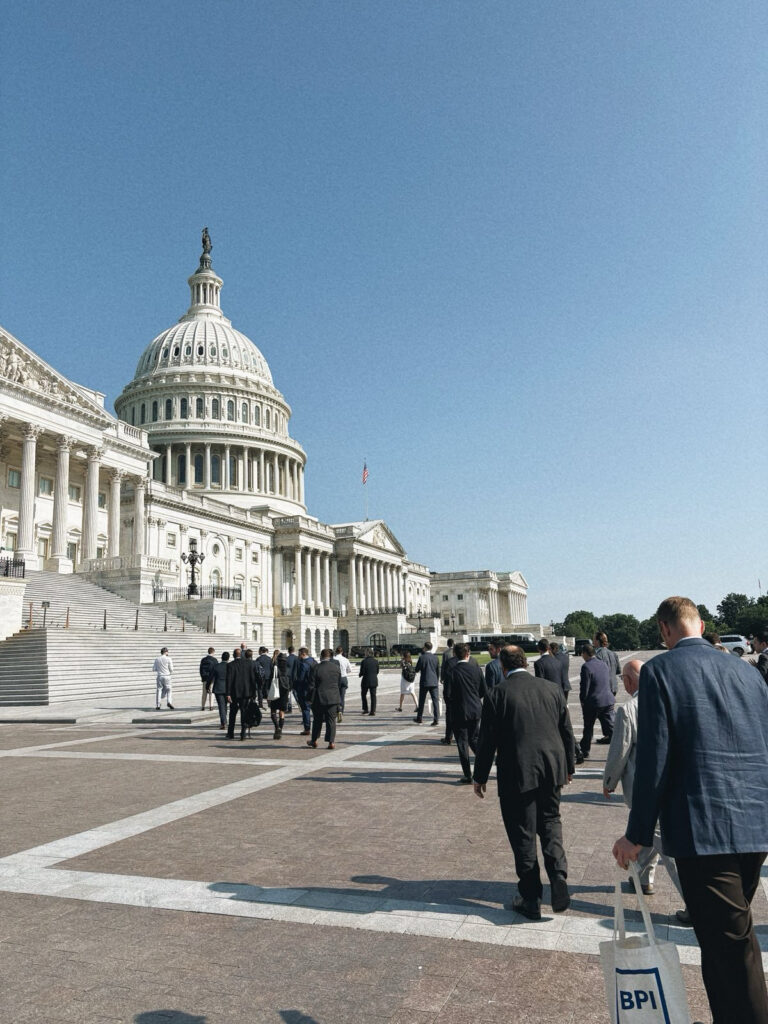
By Zack Cohen, Bitcoin Policy Institute
Before immersing myself in the summary, I want to thank you. On behalf of the whole Bitcoin Policy Institute team, thanks to all those who participated, supported, spoken, tuned or participated in any way. We spent months preparing for our third summit on Bitcoin politics. What took place in Washington last week passed everything we could expect.
More than 1,000 people have joined us: manufacturers, politicians, students, agencies, journalists, energy experts and human rights supporters. And what they found was not a party dressed as a conference, but a serious two-day work session that reflected to what extent the Bitcoin-and conversation where it is going.
Bitcoin has long been misunderstood or set aside in DC. It was easy for political managers to reject it or ignore it. But the 2025 summit sent a different signal: Bitcoin is not leaving. It is not to the fringe. It is at the center of emerging conversations on national strategy, economic strength, digital rights and innovation.
A welcome that gave the tone
We opened the week with a crowded welcome party, hosted with our friends in Pubkey. For strangers, DC may seem like a rigid city: sketched, formal, slow moving. But if you spend real time here, know the truth: DC runs on relationships. And relationships are built in places like this.
Over 450 participants gathered in a room buzzing with live karaoke, strong cocktails (screams at Unchained for creating the old style of Toro and the miner’s mule) and a constant conversation. He was strong. He was joyful. But above all, it was serious energy. The bitcoiners had arrived.
Who was in the room
This year’s summit brought:
- 1,000+ Total participants
- Over 300 public policy professionals
- 35 congress offices, including 12 members of the congress
- Over 100 employees of the Federal Government
- Over 50 press members
- 49 Universities
- Over 90,000 spectators Livestream
Participants included national security experts, financial regulators, Think Tank analysts, open source developers, non -profit leaders and more. Bitcoin’s coalition is enlarged and has shown it.
What we talked about
The program was structured around clear issues: national security, energy, privacy, financial inclusion and legislative strategy. The key notes, the panels and lightning interviews have made room for both the technical depth and for the wide vision.
In the opening segment, Zack Shapiro has outlined the national BPI strategy framework-a vision of the American leadership Bitcoin based on open source values, resilience and far-sighted politics. This was followed by an acute panel on the Senate priorities, including Bitcoin Act.
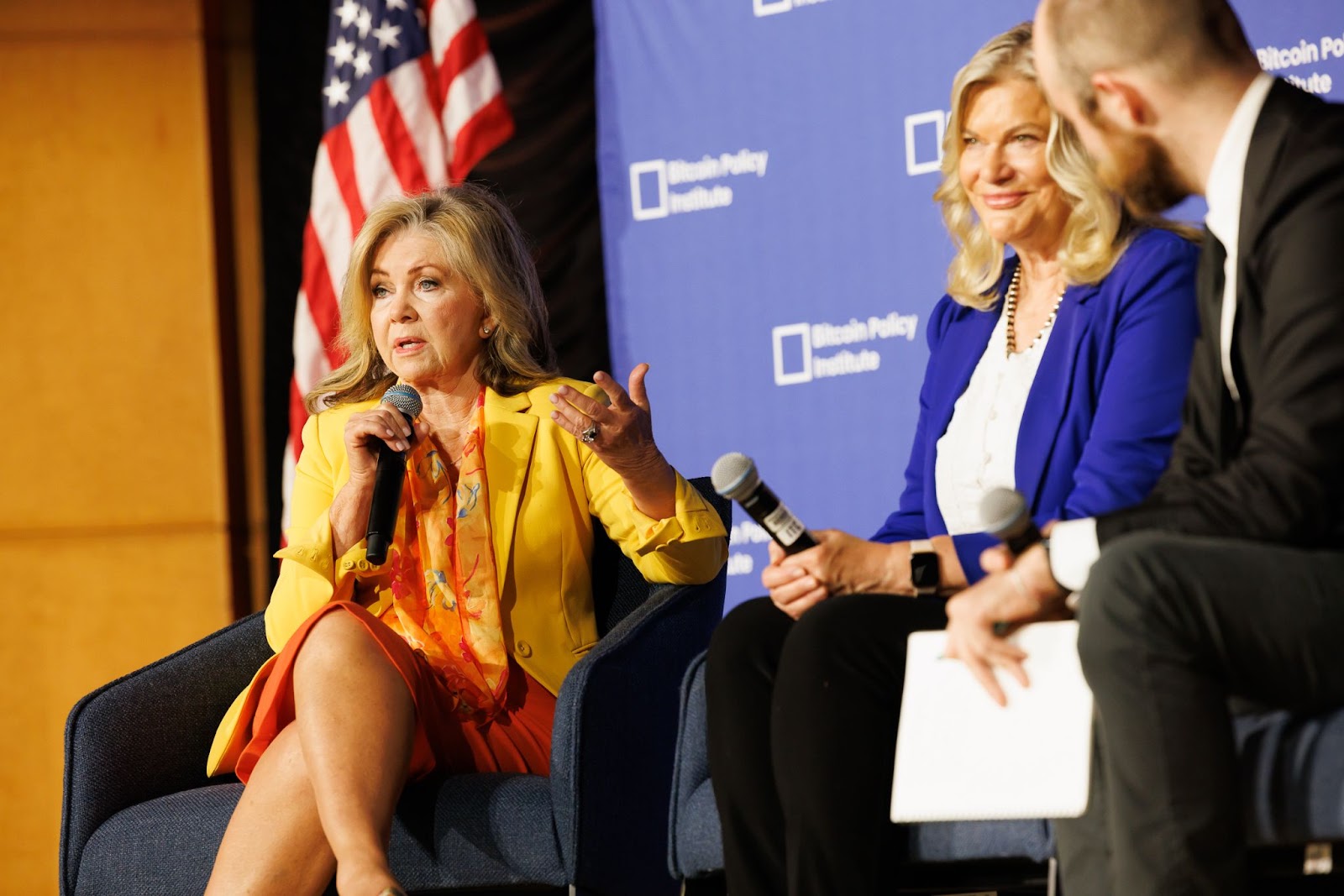
Alex Leishman has held a speech full of data on the American advantage of Bitcoin-For because our institutions, our capital markets and the rule of law position the United States to drive. Alex Gladtein gave birth to the Human Rights Lente, reminding the room that Bitcoin is still the most powerful freedom of freedom of the 21st century.
Patrick Witt, deputy director of the President’s Council for digital resources, reiterated the strategic interest of the administration for Bitcoin, highlighting the progress in progress:
“There will be the next report on intelligence activities. We have already taken some steps with the SPR. The question now is: how can we follow it with an accumulation plan? There is no lack of opportunity and jobs to do. So after we go here, I will return immediately.”
Two Democrats, the representative Ritchie Torres (D-NY) and the representative Josh Gottheimer (D-NJ) joined the tenth well-known developer of Bitcoin Core Matt Corallo and the co-president of the BPI Grant McCarty to discuss the need to make Blockchain Regulatory Cardiaty Act Bipartisan.
At one point during the panel, the Rep. Torres observed,
“Bitcoin’s value is safer than gold value because you can always find more gold, but the supply of Bitcoin in the world will remain fixed for perpetuity.”
The Gotttheimer representative, who recently signed as a co-sponsor of the bill, joined the Torres representative on stage to explain his decision as co-sponsor of the bill and underline the importance of protecting the innovators and preserving the integrity of the open source development ecosystem.
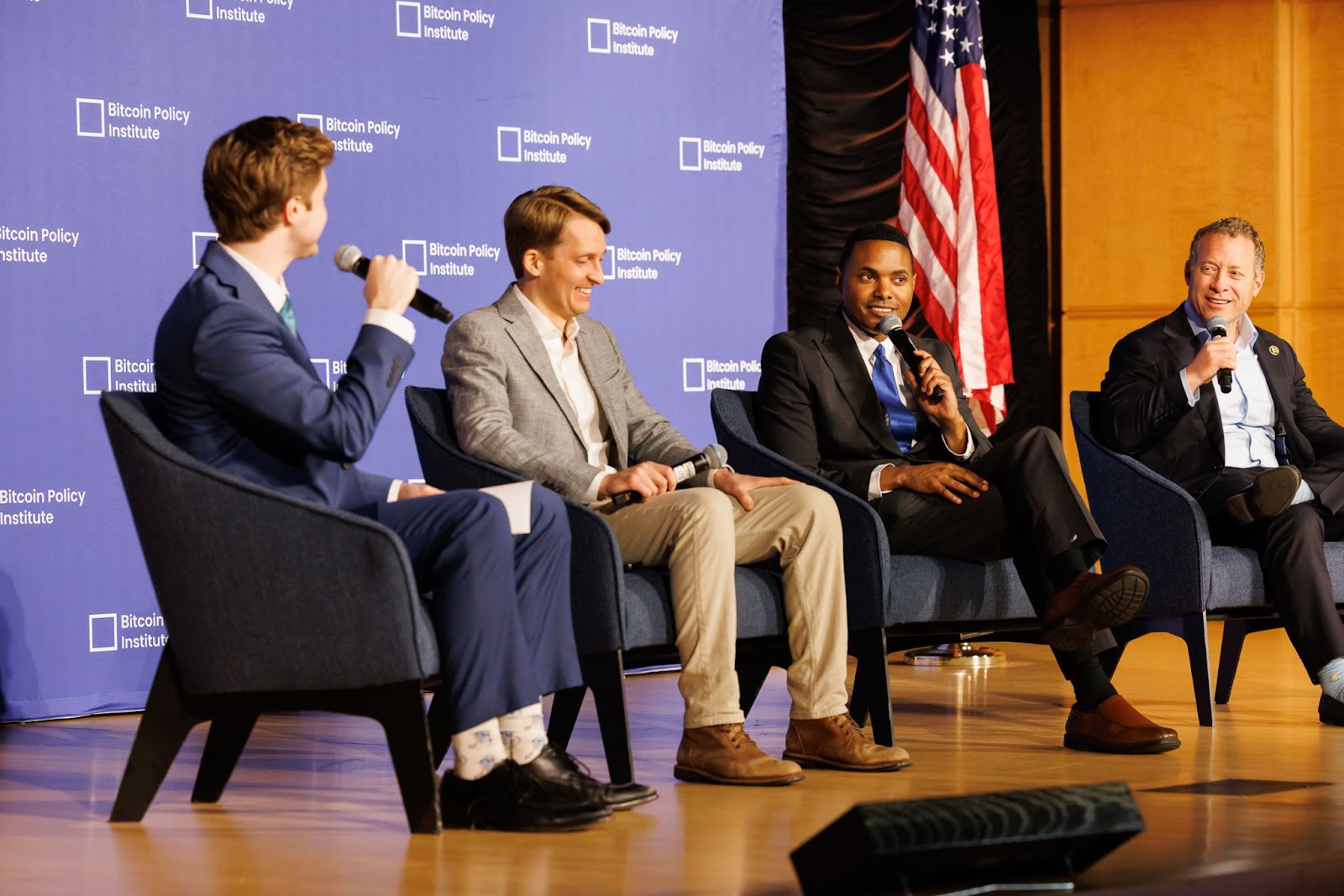
In one of the great impact sessions, Zack Shapiro of BPI sat with the commissioner of the Hester Peirce century to discuss the structure of the ETF, the qualified custody and how the future of the Bitcoin native financial infrastructure might appear. It was detailed, honest and substantial – exactly what this moment requires.
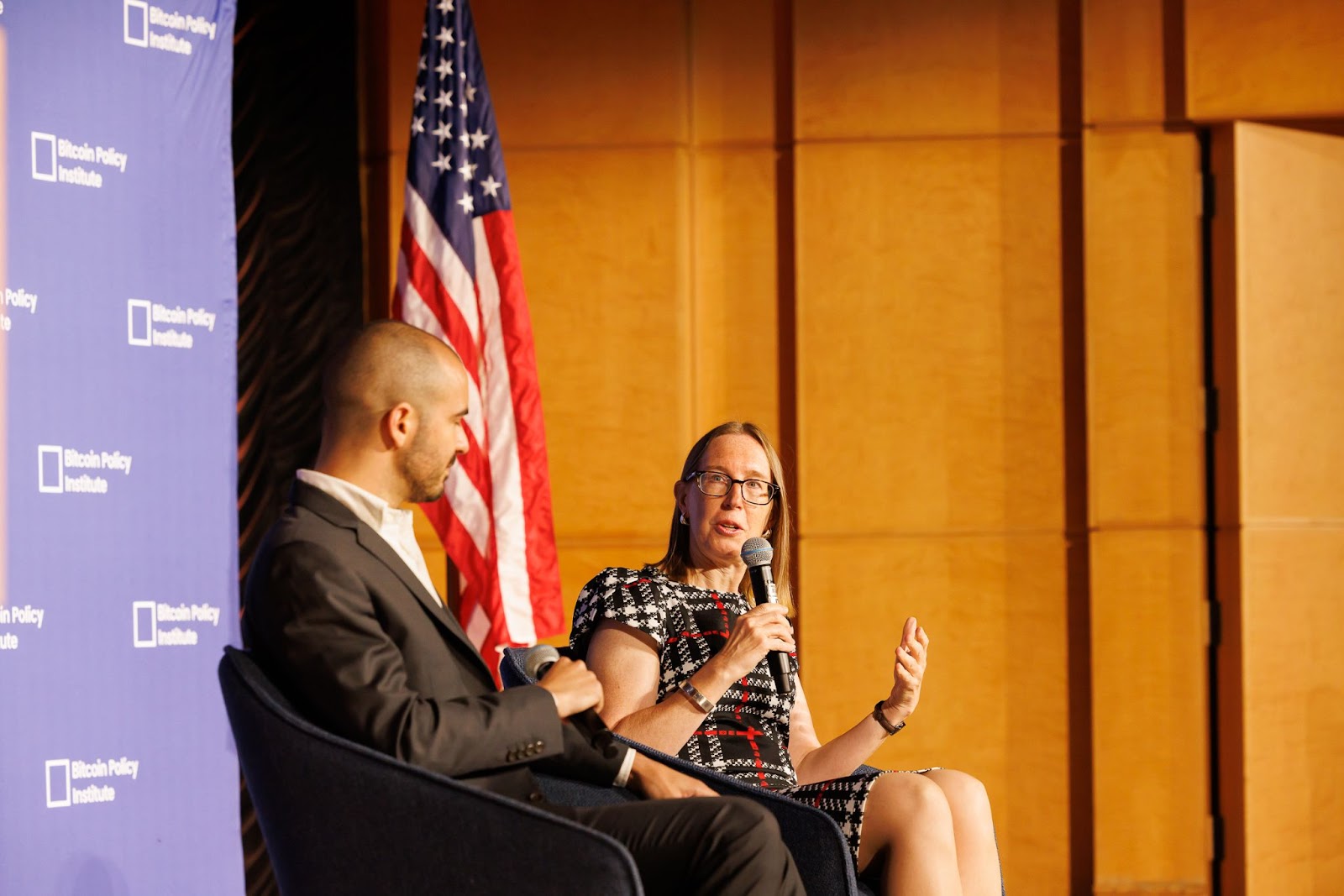
Office hours and chamber questions and answers
News of this year, we introduced hours of structured office: individual sessions in which the participants could sit with our research companions. These conversations have dug in mining, privacy, regulation and monetary strategy in an unspecified environment.
The questions of questions and answers added another level of depth. The Cygnal Brent Brent Ceo has crossed a recent survey of 800 probable medium -term voters. The results were clear: the bitcoiners are becoming a political electoral college. Ignore them at their own risk.
Anna Chekhovich also conducted a basic bitcoin 101 session for politicians, breaking down the bases of Bitcoin in a simple language, rooted in its global work of human rights.
Bitcoin on the hill
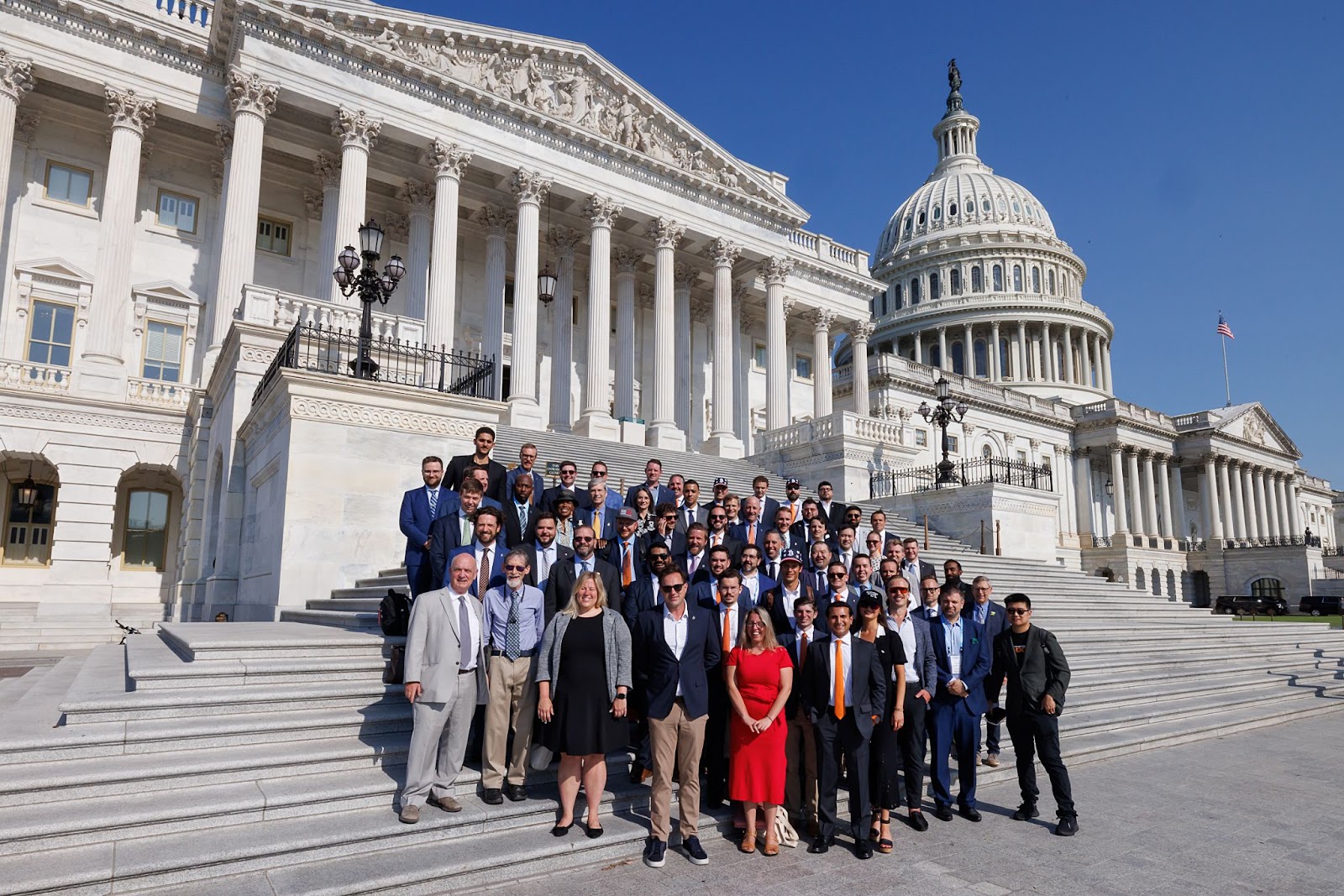
BPI Day on the hill He marked the greatest coordinated effort up to the date of Bitcoin supporters who commit themselves directly with legislators. Over 120 participants participated in 118 meetings confirmed with the Congress offices:
- 48 offices of the Senate
- 70 domestic offices
- Over 10 meetings at the level of members
- Offices of 68 democrats and 50 republicans
- Representation from 28 States, DC and a territory in the United States
This was not a performative. It was strategic. For many at the congress, these were the first real conversations they had with supporters of Bitcoin serious and led by the mission.
Reflections
What distinguished itself this year was the tone. The bitcoiners were dressed in a jacket and tie. Not as costume, but as a signal. We came to commit ourselves seriously. The excitement in the room was not a clamor: it was rooted with focus, preparation and a shared sense that this moment counted.
And DC replied. The politicians and the staff were not only open, they were busy. They asked good questions. They listened. The distance between Bitcoin and Washington is reducing, fast.
Personally, the most surprising realization was that Gen Z had presented itself in force. It was not just the number of young people in the room: it was their presence. They were engaged, sharp, curious and honestly enthusiastic about being part of the conversation. I have been to more conferences than I can count, and this was the first time that it seemed to me that my peers were not looking at the field. They were in it: to base questions, guide the dialogue, model the future. And above all, we are just starting.
This is only the beginning
The Bitcoin Policy Institute is positioned uniquely to host a summit that does not respond to anyone except for its mission. Bitcoin does not ask for special treatment. It is not a pressure for flyers. It is doing a case, as regards the reason why it is important for American sovereignty, innovation and economic freedom.
That case has become much more difficult to ignore.
See you next year.
This is a post for Zach Cohen’s guests. The opinions expressed are entirely proper and do not necessarily reflect those of BTC Inc or Bitcoin Magazine.
